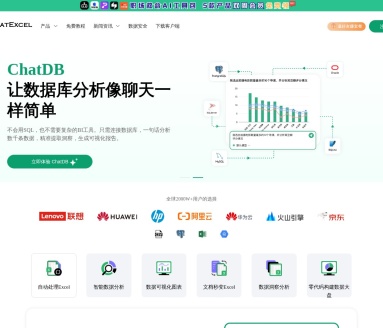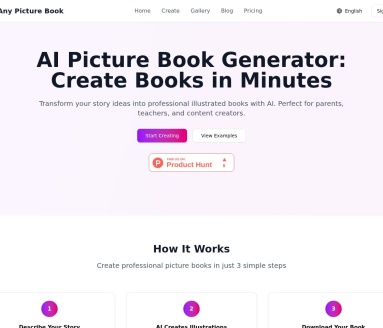如何使用Golang Facade模式解决多层次依赖关系
“纵有疾风来,人生不言弃”,这句话送给正在学习Golang的朋友们,也希望在阅读本文《如何使用Golang Facade模式解决多层次依赖关系》后,能够真的帮助到大家。我也会在后续的文章中,陆续更新Golang相关的技术文章,有好的建议欢迎大家在评论留言,非常感谢!
如何使用Golang Facade模式解决多层次依赖关系
简介
在软件开发中,尤其是大型项目中,经常会出现多层次依赖关系的情况。这些依赖关系的管理和维护可能会变得非常复杂。为了解决这个问题,我们可以使用Facade模式。
Facade模式是一种结构设计模式,它提供了一个简化的接口,来封装一系列复杂的子系统。通过使用Facade模式,我们可以将复杂的系统逻辑隐藏起来,对外提供简单的接口。在本文中,我们将使用Golang编程语言来演示如何使用Facade模式解决多层次依赖关系。
实例背景
假设我们正在开发一个社交媒体应用程序。该应用程序有一个UserService用来管理用户信息,一个PostService用来管理用户发布的文章,还有一个NotificationService用来发送通知给用户。这三个子系统之间存在依赖关系。UserService需要依赖NotificationService发送注册成功的通知,PostService需要依赖UserService获取用户信息。
实现
我们首先定义了UserService、PostService和NotificationService这三个子系统的接口。然后,我们创建一个Facade接口,该接口封装了这些子系统的方法。
package main
import "fmt"
// 定义UserService接口
type UserService interface {
Register(username string, password string) error
GetUser(username string) (string, error)
}
// 定义PostService接口
type PostService interface {
Publish(username string, content string) error
}
// 定义NotificationService接口
type NotificationService interface {
SendNotification(username string, message string) error
}
// 实现UserService接口
type UserServiceImpl struct{}
func (userService *UserServiceImpl) Register(username string, password string) error {
fmt.Println("User registered:", username)
return nil
}
func (userService *UserServiceImpl) GetUser(username string) (string, error) {
fmt.Println("Getting user:", username)
return "User Information", nil
}
// 实现PostService接口
type PostServiceImpl struct {
userService UserService
}
func (postService *PostServiceImpl) Publish(username string, content string) error {
_, err := postService.userService.GetUser(username)
if err != nil {
return err
}
fmt.Println("Publishing post for user:", username)
return nil
}
// 实现NotificationService接口
type NotificationServiceImpl struct {
userService UserService
}
func (notificationService *NotificationServiceImpl) SendNotification(username string, message string) error {
_, err := notificationService.userService.GetUser(username)
if err != nil {
return err
}
fmt.Println("Sending notification to user:", username)
return nil
}
// 定义Facade接口
type Facade interface {
RegisterUser(username string, password string) error
PublishPost(username string, content string) error
SendNotification(username string, message string) error
}
// 实现Facade接口
type FacadeImpl struct {
userService UserService
postService PostService
notificationService NotificationService
}
func (facade *FacadeImpl) RegisterUser(username string, password string) error {
return facade.userService.Register(username, password)
}
func (facade *FacadeImpl) PublishPost(username string, content string) error {
return facade.postService.Publish(username, content)
}
func (facade *FacadeImpl) SendNotification(username string, message string) error {
return facade.notificationService.SendNotification(username, message)
}
func main() {
facade := &FacadeImpl{
userService: &UserServiceImpl{},
postService: &PostServiceImpl{userService: &UserServiceImpl{}},
notificationService: &NotificationServiceImpl{userService: &UserServiceImpl{}},
}
facade.RegisterUser("Alice", "123456")
facade.PublishPost("Alice", "Hello world")
facade.SendNotification("Alice", "Welcome to our platform")
}执行上述代码,我们就可以看到以下输出:
User registered: Alice Getting user: Alice Publishing post for user: Alice Getting user: Alice Sending notification to user: Alice
总结
通过使用Facade模式,我们能够简化系统的复杂性,封装子系统的细节实现,并提供一个简单的接口供外部系统使用。在本文中,我们使用Golang编程语言演示了如何使用Facade模式来解决多层次依赖关系的问题。现在,我们可以更容易地管理和维护这些依赖关系,同时提供一个简单和清晰的接口供其他系统使用。
理论要掌握,实操不能落!以上关于《如何使用Golang Facade模式解决多层次依赖关系》的详细介绍,大家都掌握了吧!如果想要继续提升自己的能力,那么就来关注golang学习网公众号吧!
 如何实现在线答题中的试题打标和智能搜索功能
如何实现在线答题中的试题打标和智能搜索功能
- 上一篇
- 如何实现在线答题中的试题打标和智能搜索功能

- 下一篇
- Go WaitGroup简介及在Golang中的应用领域
-

- Golang · Go教程 | 4小时前 |
- Golang切片复制扩容技巧详解
- 314浏览 收藏
-

- Golang · Go教程 | 4小时前 |
- Golang多协程文件解析实战教学
- 403浏览 收藏
-

- Golang · Go教程 | 4小时前 | golang HTTP中间件
- GolangHTTP中间件教程与实战详解
- 182浏览 收藏
-

- Golang · Go教程 | 4小时前 |
- Golang依赖版本管理与固定方法详解
- 127浏览 收藏
-

- Golang · Go教程 | 5小时前 |
- Golang实现DevOps监控指标方法
- 335浏览 收藏
-

- Golang · Go教程 | 5小时前 |
- Go语言原型模式实现高效对象复制
- 315浏览 收藏
-

- Golang · Go教程 | 5小时前 |
- GolangCPU优化技巧与调优方法
- 397浏览 收藏
-

- Golang · Go教程 | 5小时前 |
- Go语言Repository模式与数据层设计解析
- 181浏览 收藏
-

- Golang · Go教程 | 5小时前 |
- Golang容器日志收集方法详解
- 456浏览 收藏
-

- Golang · Go教程 | 5小时前 |
- Golangpprof火焰图与CPU热点分析
- 485浏览 收藏
-

- Golang · Go教程 | 5小时前 |
- Golang抢占式锁原理与并发保护解析
- 164浏览 收藏
-

- Golang · Go教程 | 6小时前 |
- Golangbytes包技巧:Buffer与Reader详解
- 367浏览 收藏
-

- 前端进阶之JavaScript设计模式
- 设计模式是开发人员在软件开发过程中面临一般问题时的解决方案,代表了最佳的实践。本课程的主打内容包括JS常见设计模式以及具体应用场景,打造一站式知识长龙服务,适合有JS基础的同学学习。
- 543次学习
-

- GO语言核心编程课程
- 本课程采用真实案例,全面具体可落地,从理论到实践,一步一步将GO核心编程技术、编程思想、底层实现融会贯通,使学习者贴近时代脉搏,做IT互联网时代的弄潮儿。
- 516次学习
-

- 简单聊聊mysql8与网络通信
- 如有问题加微信:Le-studyg;在课程中,我们将首先介绍MySQL8的新特性,包括性能优化、安全增强、新数据类型等,帮助学生快速熟悉MySQL8的最新功能。接着,我们将深入解析MySQL的网络通信机制,包括协议、连接管理、数据传输等,让
- 500次学习
-

- JavaScript正则表达式基础与实战
- 在任何一门编程语言中,正则表达式,都是一项重要的知识,它提供了高效的字符串匹配与捕获机制,可以极大的简化程序设计。
- 487次学习
-

- 从零制作响应式网站—Grid布局
- 本系列教程将展示从零制作一个假想的网络科技公司官网,分为导航,轮播,关于我们,成功案例,服务流程,团队介绍,数据部分,公司动态,底部信息等内容区块。网站整体采用CSSGrid布局,支持响应式,有流畅过渡和展现动画。
- 485次学习
-

- ChatExcel酷表
- ChatExcel酷表是由北京大学团队打造的Excel聊天机器人,用自然语言操控表格,简化数据处理,告别繁琐操作,提升工作效率!适用于学生、上班族及政府人员。
- 3956次使用
-

- Any绘本
- 探索Any绘本(anypicturebook.com/zh),一款开源免费的AI绘本创作工具,基于Google Gemini与Flux AI模型,让您轻松创作个性化绘本。适用于家庭、教育、创作等多种场景,零门槛,高自由度,技术透明,本地可控。
- 4284次使用
-

- 可赞AI
- 可赞AI,AI驱动的办公可视化智能工具,助您轻松实现文本与可视化元素高效转化。无论是智能文档生成、多格式文本解析,还是一键生成专业图表、脑图、知识卡片,可赞AI都能让信息处理更清晰高效。覆盖数据汇报、会议纪要、内容营销等全场景,大幅提升办公效率,降低专业门槛,是您提升工作效率的得力助手。
- 4173次使用
-

- 星月写作
- 星月写作是国内首款聚焦中文网络小说创作的AI辅助工具,解决网文作者从构思到变现的全流程痛点。AI扫榜、专属模板、全链路适配,助力新人快速上手,资深作者效率倍增。
- 5436次使用
-

- MagicLight
- MagicLight.ai是全球首款叙事驱动型AI动画视频创作平台,专注于解决从故事想法到完整动画的全流程痛点。它通过自研AI模型,保障角色、风格、场景高度一致性,让零动画经验者也能高效产出专业级叙事内容。广泛适用于独立创作者、动画工作室、教育机构及企业营销,助您轻松实现创意落地与商业化。
- 4540次使用
-
- Golangmap实践及实现原理解析
- 2022-12-28 505浏览
-
- go和golang的区别解析:帮你选择合适的编程语言
- 2023-12-29 503浏览
-
- 试了下Golang实现try catch的方法
- 2022-12-27 502浏览
-
- 如何在go语言中实现高并发的服务器架构
- 2023-08-27 502浏览
-
- 提升工作效率的Go语言项目开发经验分享
- 2023-11-03 502浏览



